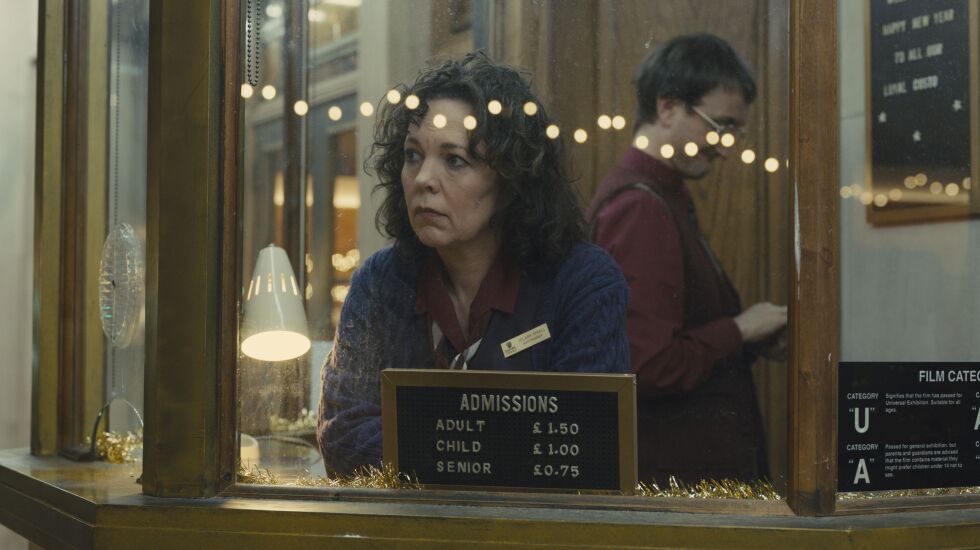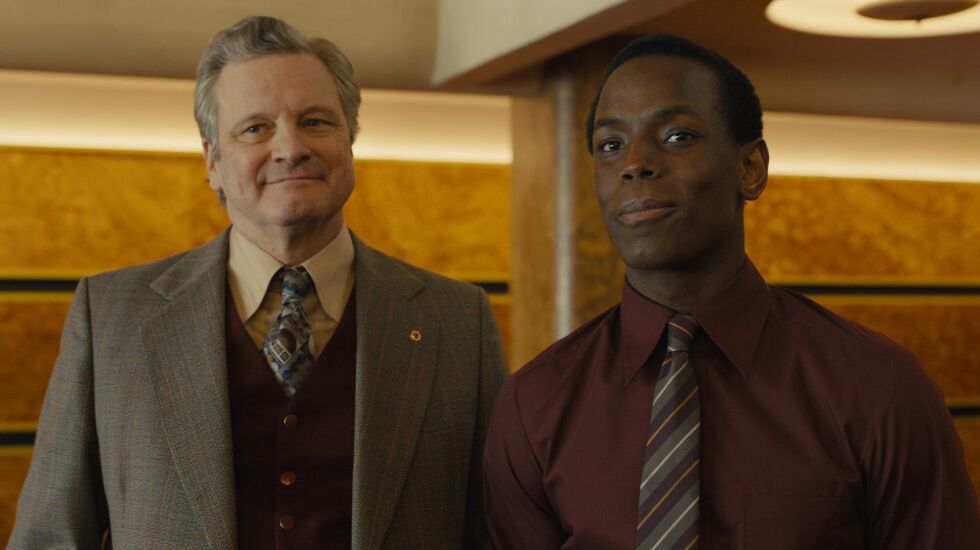
Hollywood loves making movies about movies, and this year is no exception, from the subplot about a production company shooting a film called “The Gambler” in “Downton Abbey: A New Era” to the porn-movie-within-the-horror-movie in “X” to Steven Spielberg’s semi-autobiographical “The Fabelmans” to the upcoming Golden Age epic “Babylon” to Sam Mendes’ “Empire of Light,” which takes place in and around an English coastal cinema in the early 1980s.
With the versatile and greatly talented Mendes (“American Beauty,” “Road to Perdition,” “Skyfall”) writing and directing, and a first-tier cast featuring Academy Award winners Olivia Colman and Colin Firth, along with the great character actor Toby Jones and rising star Micheal Ward, not to mention the gorgeous visuals from legendary cinematographer Roger Deakins, “Empire of Light” has all the trappings of a prestige, awards-bait film (especially given how much the movie business loves to REWARD movies about movies), but this is one of the most disappointing efforts of the year. The material is relentlessly dour, the primary relationship feels contrived and implausible, and a couple of major developments late in the film come across as forced and heavy-handed.
For all its obvious love of movies and of the shared experience of watching movies, “Empire of Light” is a decidedly downbeat effort that tries to say too much and ultimately winds up saying very little.
Colman’s Hilary is the polite and dutiful but emotionally fragile assistant manager of the struggling and somewhat rundown (but still beautiful), two-screen Empire Cinema, where she is frequently summoned by her boss, Mr. Ellis (Colin Firth) to his office to discuss some matter or another — but what the married Mr. Ellis really wants is another quick and tawdry sexual encounter with Hilary that ends with Mr. Ellis feeling sated and Hilary looking ashamed. It’s the saddest “affair” you’ve ever seen.
As Hilary’s younger colleagues (who respect and like her) talk of going out and getting into trouble and enjoying the world, we get the distinct sense Hilary has no life outside of work, and we’re not wrong. (Cue the scenes of Hilary dining alone in a restaurant, looking sad in the bath, staring out the window.) However, Hilary’s spirits brighten considerably with the arrival of the college-age Stephen (Micheal Ward), especially when they bond after Hillary shows Stephen the now-shuttered upstairs wing of the theater, and Stephen fashions a makeshift sling for a bird with a broken wing. (Ooh, it’s almost like a metaphor telling us Stephen might be able to heal Hilary’s broken spirit. Or something.)

A romance blossoms between the white, middle-aged Hilary and the Black, 20ish Stephen, both of whom feel like outcasts. (Simply walking home can be dangerous for Stephen, as he’s often harassed by racist skinheads.) At first, all seems light and lovely, but gradually, Stephen begins to realize the depths of Hilary’s mental illness, which manifests itself in shocking bursts of anger and long absences of work.
Hilary is not well, and she’s getting worse, and it all explodes on the night of a regional gala premiere of “Chariots of Fire,” which was supposed to be a showcase moment for the Empire Theater but instead turns into an unmitigated disaster. This scene affords the brilliant Olivia Colman one of several opportunities to deliver huge, Shakespearean, thundering monologues, as Hilary rails against the male patriarchy and how she’s been deceived and hurt by men her entire life — and while there’s no denying the power of Colman’s performance, so much of the dialogue she delivers feels overwritten and “speech-y.”
Every once in a while, Toby Jones wanders in as the world-weary projectionist, Norman, who takes great pride in the artistry of his profession and likes to remind his co-workers (and us) of the magic of movies, of how they help us escape from our everyday troubles. (Curiously enough, though, Hilary never watches the films playing at the Empire, never even sneaks in for a glimpse. When she finally decides to watch a film, after hours, Norman’s choice offers the opportunity for a “Cinema Paradiso” moment, but like much of the story, it feels arbitrary and a tad manipulative.) Along the way, “Empire of Light” careens back and forth from a portrait study of a lonely woman with serious mental health issues, an unconvincing and thinly drawn romance, a social commentary film about the rise of Nazi punks in Britain and a love letter to the magical powers of the cinema.
That’s four very different movies on the marquee, and none of them is particularly convincing or memorable.







